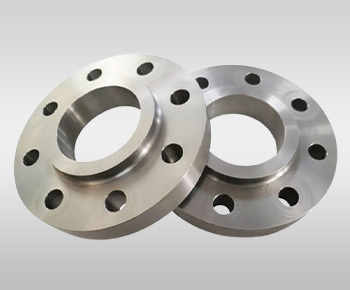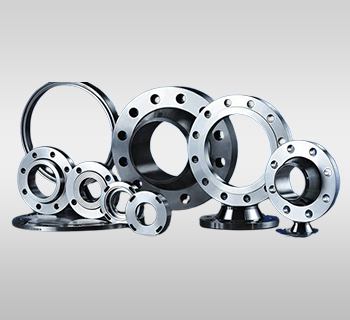
Carbon steel forging involves shaping carbon steel under high pressure to create strong, reliable components with excellent mechanical properties. It is widely used in the oil & gas industry due to its strength, cost-efficiency, and ability to perform under high pressure and temperature. Carbon steel is ideal for manufacturing flanges, fittings, and connectors used in pipelines and processing units. Forging improves grain structure, resulting in components that are tougher and more fatigue-resistant than cast or machined alternatives.

Alloy steel is enhanced with elements like chromium, molybdenum, and nickel to improve strength, hardness, and resistance to wear and high temperatures. Forged alloy steel flanges are commonly used in refineries, power plants, and high-stress environments across oil & gas operations. The forging process ensures dimensional accuracy and superior structural integrity, making alloy steel flanges a dependable choice for critical pressure applications.

Stainless steel, rich in chromium content, offers excellent resistance to rust, chemicals, and oxidation. Forged stainless steel flanges are widely used in offshore platforms, petrochemical plants, and gas processing units where both mechanical strength and corrosion resistance are essential. The forging process further enhances density and durability, ensuring long service life in corrosive and high-humidity environments.

Duplex and super duplex stainless steels combine the strength of ferritic steels with the corrosion resistance of austenitic steels. These forged materials are ideal for subsea pipelines, offshore platforms, and high-chloride environments, offering excellent resistance to pitting and stress corrosion cracking. Their high strength-to-weight ratio and durability make them a preferred material for flanges and fittings in aggressive oil & gas conditions.

Hastelloy, Inconel, and Monel are nickel-based alloys engineered for extreme environments involving high temperatures, aggressive chemicals, and seawater exposure. Forged flanges and components made from these alloys are essential in high-pressure, high-corrosion zones such as offshore platforms, sour gas lines, and chemical injection systems. Hastelloy is known for acid resistance, Inconel for heat stability, and Monel for marine durability—together addressing the toughest challenges in the oil & gas sector.

Beyond commonly used materials, we offer forging solutions in custom grades, project-specific compositions, and standard-compliant grades not listed above. Our expertise extends to manufacturing flanges and forged components using customer-defined chemical and mechanical specifications, including niche or proprietary material requirements. We also support a wide range of international standards—such as ASTM, ASME, EN, DIN, BS, and ISO—even for grades not typically stocked. Whether the need is for enhanced corrosion resistance, unusual temperature profiles, or compatibility with aggressive media, our flexible forging processes and metallurgical capabilities ensure precise compliance with the most demanding specifications. All materials are backed by full traceability, certified testing, and industry-relevant documentation.